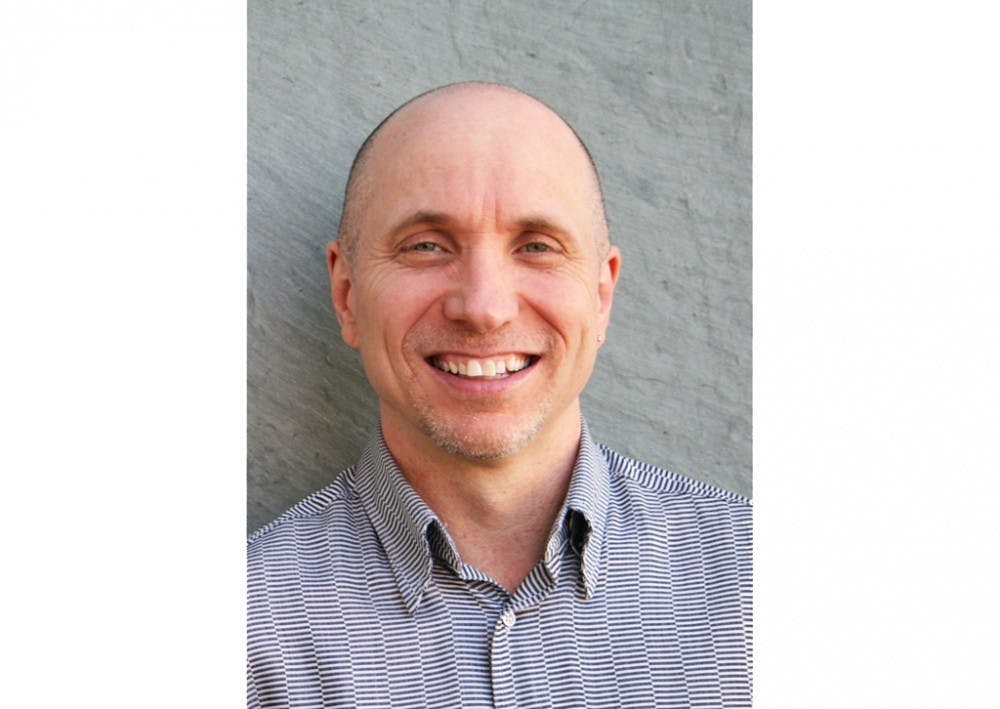Dr. Ralph Savarese is spending the academic year at Duke as a fellow in the Humanities Writ Large program. An associate professor of English from Grinnell College, he is working with the Institute for Brain Sciences and the Neurohumanities Research Group on a project, “A Dispute with Nouns: Autism, Poetry and the Sensing Body,” that investigates the relationship classically autistic individuals have with poetry. The Chronicle’s Emma Baccillieri spoke with him about his research.
The Chronicle: Could you give an overview to the research you’re currently doing?
Ralph Savarese: Well, there’s quite a bit of background context you have to know in order to understand the research. My involvement with autism really started 15 years ago, when my wife and I adopted our son, who’s autistic. And once we adopted him, our house kind of became, in some ways, like a home lab—we were watching him acquire language and helping him with his tremendous sensory issues and just learning about him as someone with a brain that works very differently. Eventually he started to show this understanding of words and literary language. And there’s this consensus that autistic individuals can’t process literary language—this idea that they’re baffled by metaphor, baffled by simile, baffled by all these sorts of figures of speech. But I realized that my son didn’t fit that paradigm. And what’s more, I realized, is that not only are we not talking about the subtype of autistic individuals who understand literary language, we’re not talking about the fact that plenty of neurotypical people don’t understand literary language, either. Failing to understand literary language is not something exclusive to autistics. There are so many college freshmen that are baffled by literary language—I know because I teach them every semester! They come in unable to really process poetry, and by the end of the semester, they’ve had enough exposure to really increase their understanding. But what happens to so many kids who are diagnosed with autism is that they don’t get a chance to experience a similar type of exposure—there’s so many examples of autistic individuals who are just fabulous at math and science, but not many similar examples with literature, and so often when kids receive a diagnosis of autism, they’re tracked out of language classes. But what I’ve discovered is that there are autistic individuals—my son included—who, given exposure to poetry and literary language, show that they not only understand it, but excel at it. It’s tied more to the senses, it’s rhythmic, it’s this hold-over from oral culture, and it often makes so much sense to them.
TC: Are there any special techniques you use to get autistic children to engage with poetry, or is simple exposure enough?
RS: I honestly don’t really have a definitive answer to that. Something important is that the autistic kids we work with are all literate to begin with, they’re all kids who have already learned how to read, and we’re just exposing them to more poetry and literary language. But what we’ve found is that often times the language these kids emerge into themselves is already somewhat poetic. An example I can give from my son took place a few years ago, when I had a hip replacement and we had to have a hospital bed in the house, which really agitated my son. We took him to see his therapist, and the way my son described it was, “Mom and Dad have invited injury into the home.” See, that’s not language that you or I would necessarily use—we wouldn’t immediately reach for something figurative such as that. His language use is distinctive, this spontaneous poetry. And it’s something I’ve now seen in other autistic individuals, where after they receive some exposure to literary language, you can see a proclivity for poetic communication. What you see is this enormous capacity for poetic expression, and it begins with this instinctive understanding.
TC: Other than the personal connection you had to autism because of your son, was there anything that led you to become interested in this research?
RS: For me to become interested, it was really just this confluence of many rivers. From my son, I’d realized that autistic individuals are different than us, not less than us—I like to use the term “neurodiversity.” There are some areas in which they’re actually far more advanced than us: in memory, in pattern recognition. And then there are the areas in which we’re more advanced than they are. But because we—the neurotypicals—rule the world, we have it set up so that our own neurological shortcomings are often disguised, and theirs are often displayed. It really struck me just how wrong—how demeaning, how dehumanizing—scientific literature has been to autistic individuals, and I wanted my own research to be able to counteract this trend. I decided that I wanted to do this at time when MRIs were becoming much more advanced, allowing us to see much more about an individual’s brain, and at a time when we saw this big push towards interdisciplinary studies, with all these subfields emerging that show neuroscience interacting with the humanities in different ways. Everything kind of came together in the right way for me to able to research this.
TC: As an English professor, have you had any challenges adapting to working in the Brain Institute?
RS: Certainly when I started, all of my English colleagues were asking what I was doing in a brain institute! But it truly hasn’t been so difficult to make the adjustment. I attended a two week neuroscience boot camp with graduate students before I began. And working with autism has been something I’ve been doing for quite some time now, so that isn’t too dramatic a transition.
Get The Chronicle straight to your inbox
Signup for our weekly newsletter. Cancel at any time.

